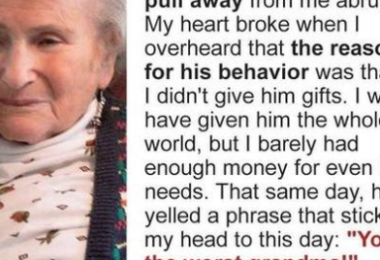The worst thing I’ve ever gone through was losing my parents, but my family—my grandparents, my older brother, and my cousin—were my constants. After graduating from college, our grandparents promised each of us a sizable gift: a down payment on a house. For us, this custom represented a rite of passage as well as financial assistance, so it was really important.
I breezed through college on a bursary and scholarship, settling into a cute house next to the train station that served as a symbol of my freedom. After that, my life took a different turn when I married my spouse and introduced him to my family. Yvonne, my cousin, was one of them. She was a picture of beauty that I never felt I could compete with until betrayal raised its ugly head.
I found out about their affair three months into my marriage. Texts that were inadvertently synced to our shared tablet exposed the foolishness of the digital era. An icy rage overwhelmed my hurt. Unaware of my revelation, Yvonne foolishly invited me to celebrate her graduation and birthday together. She was going to tell our family about her academic journey, a proud moment that would soon be eclipsed by her deceit.
I found myself by myself in her house, acting as though I could help while she was out, in a scene straight out of a drama. That’s when I changed her presentation, inserting the critical texts that were sent between her and my spouse. Up to the point of revelation, I played the part of the unaware cousin.
When her birthday finally arrived, the day that should have been spent celebrating became a show of deceit. Yvonne’s presentation exposed her own hypocrisy while she praised the benefits of having a family. The results were disastrous and happened right away. I withdrew to my grandparents’ house in search of comfort and divorce legal advice.
The consequences were severe. Once a cherished family member, Yvonne discovered herself shunned. My prenuptial agreement safeguarded my assets, allowing my spouse to realize the seriousness of his error.
To further isolate Yvonne, my grandparents—who were ardent supporters of marital fidelity—shifted their financial support from her to me. Her financial future was now uncertain despite her academic achievements, and her separation from the family made matters worse.
The consequences were severe. Unable to look past their parental prejudice, my aunt and uncle held me responsible for their daughter’s suffering. Despite the growing distance within the family, most chose to support me and not question my grandparents’ authority.
During the entire ordeal, my spouse’s entreaties were ignored. His adultery-tainted affection was powerless. His realizations arrived too late, and without the security I had given him, his future was uncertain.
Ultimately, I found myself doubting my own strategies. Had I overreached myself with my grandparents’ involvement and the public revelation of Yvonne’s betrayal? Was I wrong to pursue justice in such an overt manner?
The lengthy divorce process didn’t change my mind, though. My ex-husband and cousin had made their decisions, and I, backed by my family and confident in my morality, had made mine.
Not only had the betrayal destroyed my marriage, but it had also ruptured familial ties, creating long-lasting wounds. I managed to weather the storm with a clear conscience and a heart that was starting to heal, though, because I found strength in my resolve despite the chaos.
This is a comparable tale of treachery within the family.
My family kept me from vacation so I could take care of their kids, and I gave them some valuable parenting advice.
I unintentionally found myself at the heart of a familial storm that tested connections and exposed the intricate layers of communication—or lack thereof—within my family while navigating the turbulent waters of family dynamics and expectations. The story starts with a mistake that felt more like a flat-out exclusion: Aunt Carol was the beneficiary of a lavish family cruise that was organized as a farewell party to celebrate her retirement, but I was left out of what should have been an unforgettable family reunion.
It was all planned out on Facebook, a social media site I had long since given up on. My phone number could have been a direct line to include me, but my family decided to rely only on this digital space for contact. I learned of the intentions during a casual conversation about a departure gift for Aunt Carol, and it was a discovery that hurt like hell.
My exclusion was justified—and it was confusing as well as painful—by saying that I was chosen—apparently without my knowledge or consent—to look after a group of young relatives. I was set on fire by this assumption of my job without any kind of consultation, which led me to forge my own course toward disobedience and self-care.
With that, I set out on my own vacation with my boyfriend and adult son, eschewing the expectations and presumptions of my family. My family was forced to face the truth of their mistake and the fallout from their presumptions by the striking contrast between the warmth of our retreat and the cold shock of my absence.
When we got back, there was a lot of tension and accusations. My family made me the villain because I chose autonomy over assumed obligation, and they were caught off guard by their derailed plans. However, their assertions of oversight seemed flimsy, like a thinly veiled cover-up for a deeper lack of decency and regard in our family relationships.
Following this episode, I managed to make a tiny statement to my family, hopefully emphasizing the value of open communication and respect for personal space. I sent them postcards from our trip, with a babysitter’s number printed on the back to serve as a subliminal reminder of the options at their disposal should they decide to make plans independently of me.
Despite being focused on a particular instance of exclusion and misunderstanding, this story revealed broader themes related to family relationships, the value of open communication, and the autonomy and right to one’s own decisions. It was a difficult but essential catalyst for change in my family, making us rethink the way we think about and interact with one another.
Through this path, I have come to understand the significance of building a respectful and inclusive family environment as well as the value of standing up for oneself even in the face of familial expectations. It was ultimately a lesson in appreciating and respecting each member of the family, making sure that no one feels forgotten or taken advantage of. It wasn’t simply about a cruise that was missed or a vacation that was taken out of spite.








Leave a Comment